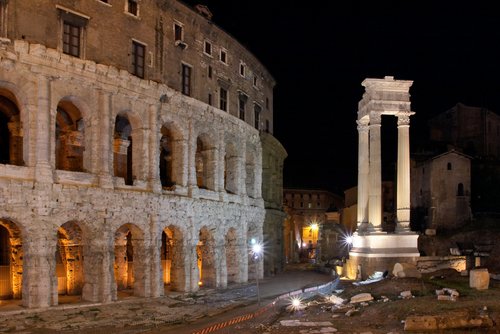
Allan Stoekl in the house:
Calculating ecological impact is more accurate than money, so they say. No external costs. All inputs have been measured or accounted for. The price of oil can be said to ignore pollution, climate change, and so on, even the gyrations of the economy. A crash is an external feature of oil, e.g. You are paying for it via economic catastrophe.
Using ecological footprint analysis we can see how our patterns are “unusustainable” in a literal sense. Western lifestyle requires six planet Earths...
How do we calculate the true cost of energy taking into account all the externalities? Nuclear materials. How do we cost the materials over 10 000 years? We have no idea what civilization is going to be like 500 years from now let alone 10 000. A kind of vertigo overcomes the effort to calculate the incalculable.
When you start to think about this stuff your head spins. Any product we buy and consume poses a huge problem in determining its footprint. There is an infinite remove. Every production system an enormous collection of energy inputs stretching away to seeming infinity. This is not to say that rough externalities can be arrived at. (That's a nice image of withdrawal, TM)
Nature doesn't have to calculate inputs. There will always be an incalculable mystery. The external will remain beyond our grasp. We're not smart enough to do what nature does unconsciously. The world is ultimately beyond human calculation. Our reason fails when we try to calculate a human friendly equilibrium state.
Nature as disequilibrium. Extinction. Overshoots of population.
A model of sustainability is thinkable. Post-sustainability is based on recognizing our fallibility to calculate. Things have an agency of their own. Earth saved not from total destruction. But from recognition of failure of restricted economy (vs. economy on the scale on the universe as Bataille says).
Stoekl differs from Scarry on those chairs in the way I do.
The sublime. Kant. Awe over things that dwarf us. Galaxies. Infinitely large. What is really sublime is our own reason.
The sublime of yawning externality by contrast. Different (hooray!).
We want to have efficient cities that have less expensive inputs. Earth Ships (Michael Reynolds).
Perfectly engineered sustainability vs. sublime city of impossibility of sustainability
There will always be at least one more term that boggles the mind. A city of detournement. Retrofitting. Gleaning. Not a dystopian possibility of the future. It's here already.
Fewer people can survive in money economy. Huge swathes can no longer even live the fantasy of the global economy. You have to earn money to eat, pay taxes etc. Jobs no longer there. The growth of scavenging.
New York Times essay about southern Ohio. Impossible to get anything more than a minimum wage job. Nothing to do there. You can't live on that. The logic is passé now. It just doesn't work.
Dimitry Orlov. The doomer's doomer. Surviving the collapse of society. Soviet Russia much better equipped to survive a catastrophe than the USA, because there was already alternative economies such as bartering. In US we have to have money. The crisis would be much worse than Soviet one in early 1990s.
Dream of anarchism the potential current reality. Fantasy of imaginary inputs. City of calculation is over too. Idea that it's better to live in Manhattan than in suburbia. A city of decalculation based on the drive-to-work economy. A city of depopulation, retrofitting, gleaning. Detroit.
Portland: dream of complete planning has met its demise. Portland a car city with cracks. Planning as an after effect of the drive of planning. Detournement, retrofitting. Taking a structure and breaking it apart, like introducing a bike lane.
“Here I go off on a fantasia.” The Teatro di Marcello in Rome. An ancient theater retrofitted with apartments. (See the pic above.) Formally planned purposes always run out. In the ruins of retrofit.
Two types of urban planning. One can't recognize the sublime. The second can recognize the unrecognizable. (This is not a Kantian sublime, for me either.) The sacred is that of the refit thing. The power of the thing's resistance, the fetish. Retrofit as sacrifice. Affirmation of loss.
Cameron: the photographer Chris Jordan. A picture of two million plastic bottles. Almost mathematical sublime. But then he goes to Midway island, photos of chicks that have died from feeding on the plastic garbage. It's more intimate. (My notion of very large finitude.)
No comments:
Post a Comment